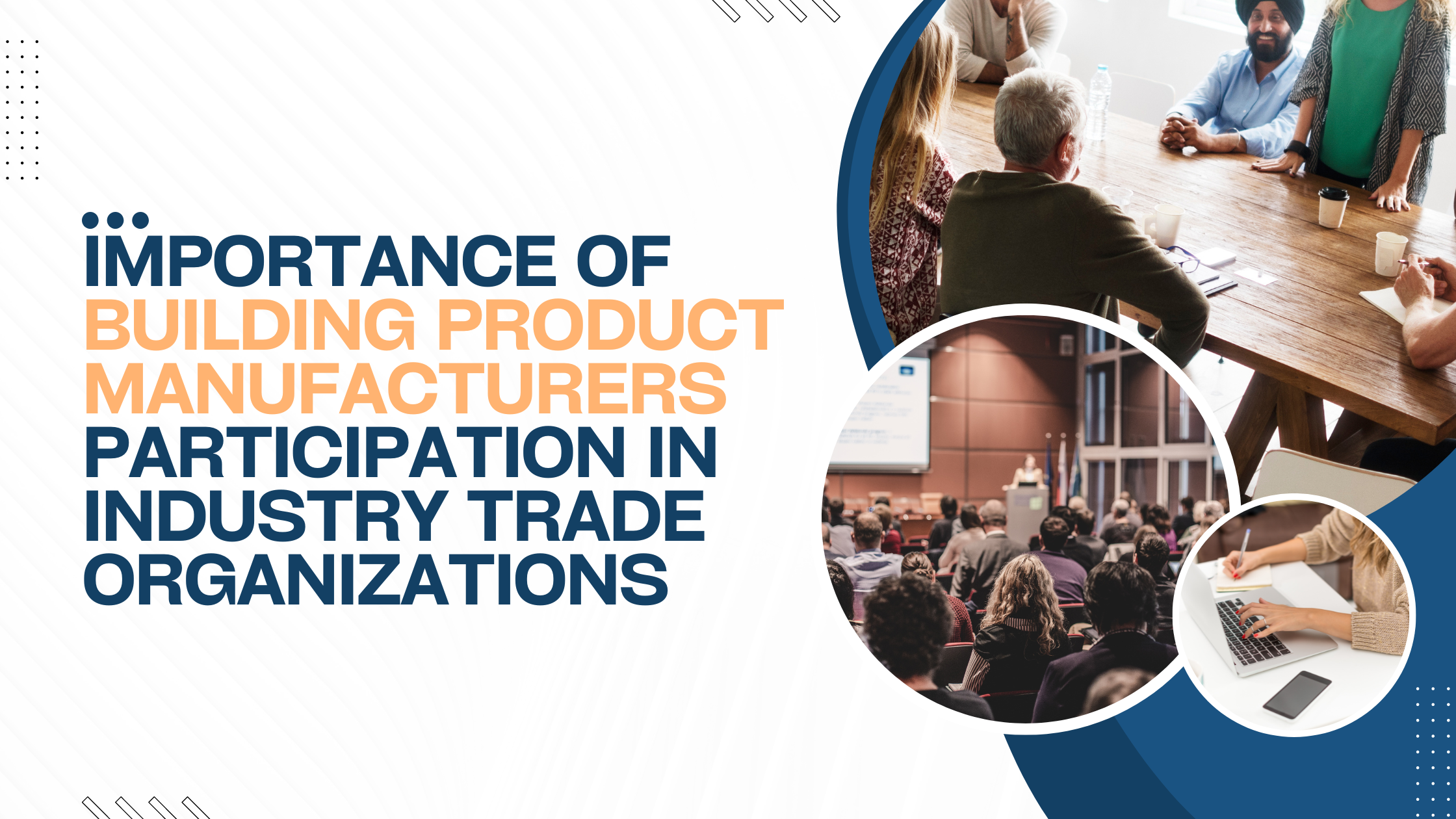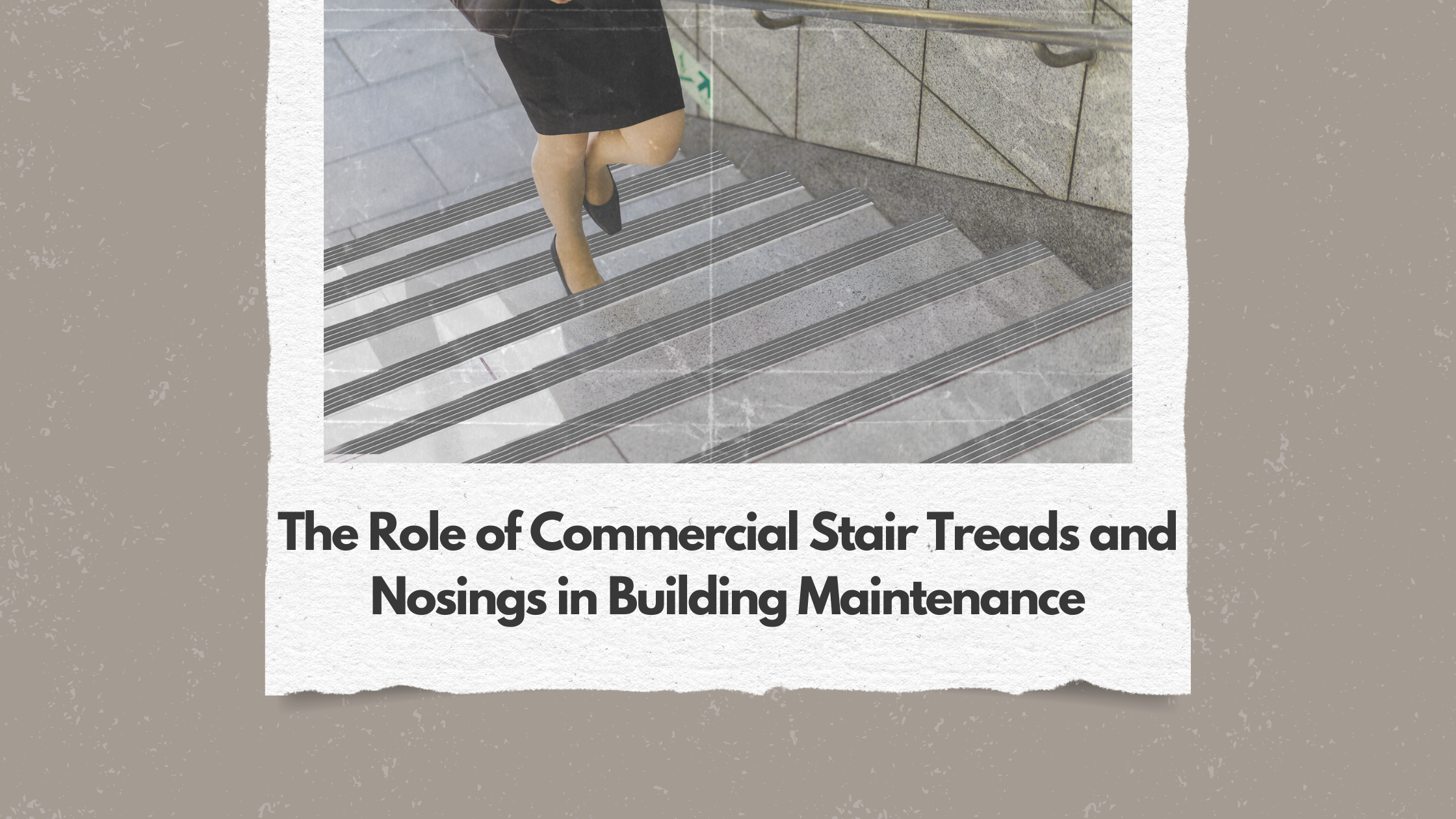The Importance of Building Product Manufacturers Participation in Industry Trade Organizations

The Vital Role of Industry Trade Organizations for Building Product Manufacturers
Networking Opportunities:
Participation in industry trade organizations like Construction Specifications Institute (CSI) or International Institute of Building Enclosure Consultants (IIBEC), opens doors to invaluable networking opportunities. By connecting with other manufacturers, suppliers, contractors, and professionals in the field, manufacturers gain insights, share experiences, and forge strategic partnerships. These networks foster collaboration, facilitate knowledge exchange, and often lead to new business opportunities and collaborations.
Access to Market Intelligence:
Industry trade organizations, such as the American Institute of Architects (AIA), serve as hubs for gathering and disseminating market intelligence and industry trends. Through market research reports, industry analyses, and seminars, manufacturers gain invaluable insights into market dynamics, emerging trends, regulatory changes, and consumer preferences. This information empowers manufacturers to adapt their strategies, develop relevant products, and stay ahead of the curve in a rapidly evolving market.
Advocacy and Representation:
Trade organizations, like National Roofing Contractors Association (NRCA) or the National Precast Concrete Association (NPCA) advocate for the interests of their members at local, regional, and national levels. By representing the collective voice of manufacturers, these organizations influence policy decisions, regulatory frameworks, and industry standards. Manufacturers benefit from advocacy efforts that promote fair competition, support innovation, and create a conducive business environment. Additionally, participation in trade organizations allows manufacturers to contribute to shaping industry standards and best practices, ensuring their products meet the highest quality and safety standards.
Professional Development and Education:
Industry trade organizations including U.S. Green Building Council (USGBC) or Sealant Waterproofing & Restoration Institute (SWRI) offer a wide range of educational programs, workshops, seminars, and certifications tailored to the needs of manufacturers. These programs cover diverse topics such as product development, marketing strategies, sustainability practices, and compliance requirements. By investing in professional development, manufacturers enhance their skills, stay abreast of industry advancements, and position themselves as industry leaders.
Visibility and Brand Exposure:
Participation in industry trade organizations such as Specifications Consultants in Independent Practice (SCIP), enhance manufacturers' visibility and brand exposure within the industry. Through sponsorship opportunities, speaking engagements, and participation in trade shows and conferences, manufacturers can showcase their products, expertise, and thought leadership. This increased visibility helps manufacturers build brand recognition, attract new customers, and strengthen relationships with existing clients.
Collaboration on Industry Initiatives:
Trade organizations like Lumbermens Merchandising Corp (LMC) or Health Product Declaration Collaborative (HPDC) often spearhead collaborative initiatives aimed at addressing common challenges and advancing industry goals. Manufacturers can actively participate in these initiatives, such as research projects, sustainability initiatives, or workforce development programs. By collaborating with other industry stakeholders, manufacturers contribute to collective efforts that drive innovation, sustainability, and growth across the industry.
Nystrom Architectural and Design Specification Manager, Chris Kasa, CSI, says “From a manufacturer’s perspective, participating in groups like CSI, for example, allows the company to be closer to our customers: to listen, learn and participate at the local markets… it's a collaborative effort.” He goes on to say “for someone in my position, it’s important for me to understand what specifiers and architects want and need. Not only am I learning from them, but I get to collaborate daily with them, and that brings value to my organization.”
Participation in industry trade organizations is not merely an option but a strategic imperative for building product manufacturers. These organizations provide a multitude of benefits, including networking opportunities, access to market intelligence, advocacy and representation, professional development, visibility, and collaboration on industry initiatives. Manufacturers who actively engage with trade organizations position themselves for success in a competitive marketplace, driving innovation, and shaping the future of the construction industry.


